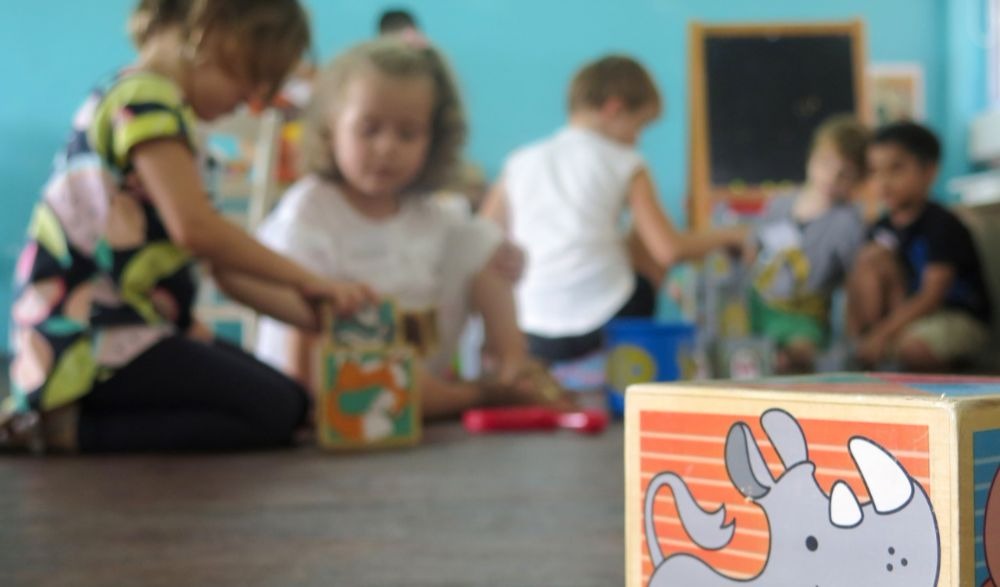The Priceless Gift Of Playgroup For Children
 Contributed by
Viviane Salin
December 19, 2017
Contributed by
Viviane Salin
December 19, 2017

This Christmas season, forget about toys (grand-parents, aunties, older siblings and family friends will take care of it); instead, why not help your child improve a particular skill?
One that will lay the foundation for later academic achievements and personal success as an individual?
Research has shown that the social development of a child is too often problematic.
For a child to become a balanced and happy individual, and a responsible citizen of tomorrow, it is necessary that he learns from an early age how to interact with adults, his peers and his environment. If you are (or will soon be) at that critical time in your life when you must get back to work, ask yourself the question: is it best for my child to stay at home with the maid or join in a social group?
This apparently simple question is daunting for most mothers, who often feel like life at home is safer for their child and that facing the challenges of social life can wait.
Home With The Helper Or Playgroup?
Financial cost aside, one of the main reasons to keep your baby or toddler at home is because he receives individual attention and care from your helper. You may fear your child is not ready for childcare but research has demonstrated that, in fact, most children develop faster, both physically and psychosocially, when they join a playgroup or school than when they stay at home with a caretaker.
Language skills, for example, are likely to improve much faster if your child is an active member of a group of children, in the structure of the class’ schedule and under the professional guidance of a pedagogical team. Playgroups and schools tend to offer a broad scope of engaging games and activities, sparking the curiosity of the child and nurturing his thirst for discovery.
By deciding to sign your child up for childcare in his early years, you give him a head start to be better prepared for school, while nurturing a positive attitude towards education for his future studies.
How Can Childcare Help Social Skills?
Pedagogical teams work towards the healthy social development of each child, on several levels. The classroom settings and design, the choice of games, toys (i.e. building blocks, cars), learning material and activities all aim at promoting positive interactions and cooperation with adults and peers.
In class, everyday situations create opportunities for the teacher to spontaneously explain what behaviour is appropriate. Through daily practice, the child learns how to share, help, take turns, show empathy and solve problems by communicating better. Observing his peers is a great way for a child to learn about appropriate social behaviour.
Additionally, preschool teachers can choose to tell social stories that address specific skills. Circle time in class provides the perfect opportunity to read such stories and later practice with role play.
If you have the choice for your child, choose multi-grade classes as cross-age interactions have been proven to be highly effective in terms of social skills acquisition and academic achievements (Parvin Kadivar, Shokooh Navabi Nejad, and Zahra Madadi Emamzade, 2005).
Supporting Social Skills Development At Home
Parents play a crucial part in the learning journey and self-development of their child. They must support the work done in class by the teachers. One of the simple ways you can promote positive behaviour is through children’s literature. Developmental bibliotherapy can open new perspectives on a number of addressed issues, providing role models, teaching the child how to face difficult situations and validating their feelings.
So this holiday lay the foundation for the future success of your child by finding the right playgroup for him and giving it a try!










Sorry, the comment form is closed at this time.